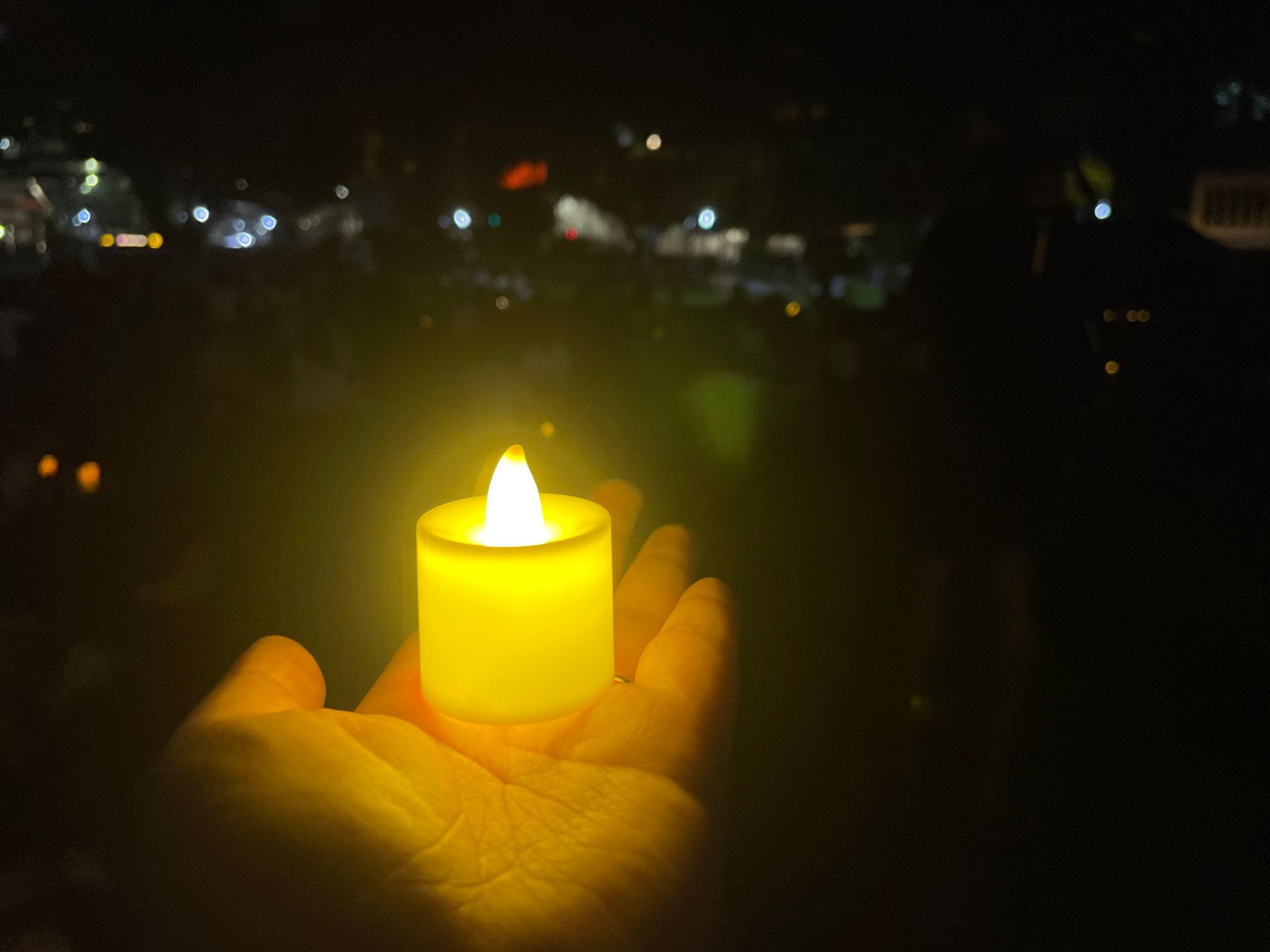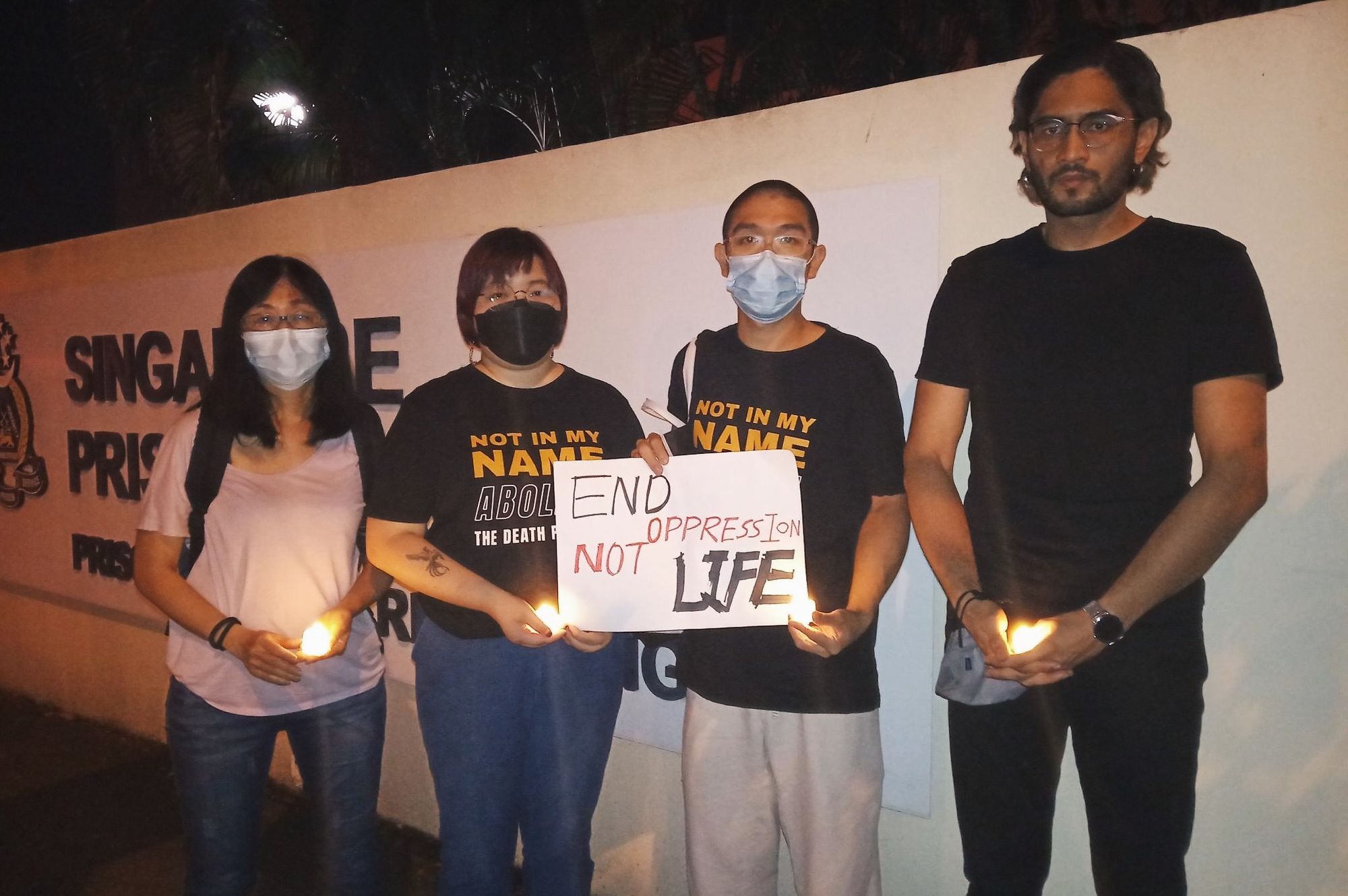Today — or, considering that it's 2:30am now, yesterday — I saw a terrified working class mother who barely speaks English stand before three solemn Court of Appeal judges. Across from her were three public prosecutors in their black gowns. Her oldest son — scheduled for execution at dawn — sat in the dock. Her family members watched anxiously from the public gallery behind her. All she had by her side was a court interpreter she'd just met, and a niece providing moral support.
Mdm Panchalai Supermaniam had to stand up in court and speak for herself because the family couldn't find a lawyer to represent Nagaenthran anymore. The last lawyers to represent late-stage death penalty cases are now facing cost orders that could come up to tens of thousands of dollars.
The application that Mdm Panchalai had filed on behalf of herself and her son, Nagaenthran K Dharmalingam, had to do with the Chief Justice, Sundaresh Menon, having been the Attorney-General (and therefore in charge of the state prosecution) when Nagen had been convicted, sentenced, and when he filed his first appeal. Sundaresh Menon, as Chief Justice, later heard two of Nagen's more recent appeals. Her affidavit essentially said that this denied her son a fair trial.
In response, the prosecution argued that Mdm Panchalai had no standing to file such an application, that Nagen had not objected to Sundaresh Menon hearing his appeals before, and that the application was an abuse of process. They wanted the court to compel Mdm Panchalai to name the people they had aided her, saying that "the lawyers and persons responsible for abetting this application should not be allowed to hide under a veil of anonymity to evade the consequences that ought to normally follow in such abuses of the court's processes." A desperate mother seeking help from anyone who would assist was thus made to sound like a sinister conspiracy.
The Court of Appeal agreed with the prosecution's arguments and dismissed the application, saying that it was "patently devoid of factual and legal merit" and describing it as "frivolous".
Nagen finally spoke up before the court adjourned. All he wanted was permission from the court to speak to his family in the courtroom itself, where he could put his fingers through a slot in the glass pane and touch his loved ones. Back in the prison, or in the holding area in the basement of the Supreme Court, families can only talk to prisoners behind a glass pane, with no contact.
Permission was granted: Nagen's family could speak to him for a bit in the courtroom, then have a final two-hour visit in the basement of the courthouse before saying goodbye forever. I saw Nagen's mother and cousin Thenmoli go up to the dock. I saw them grip his fingers and hold on tight. I saw Thenmoli press her face against the slot so he could kiss her cheek. It was the most skin contact that Nagen has had with the people who love him most in a long time.

Counting down
It is now 3am. Unless there is a miracle, Nagen will be dead in about three hours. But I just saw him wave at us when he was brought into the courtroom, saw him smile at his younger brother, saw him gesture to his relatives to ask if they'd eaten. Just hours ago, when I saw him, he was a healthy young man, only a couple of months older than me. How can he be dead in three hours?
I've heard from the family members of multiple death row prisoners today. They are all party to a shared terror; one execution notice hurts them all. Relatives of prisoners already executed relive the pain they'd suffered; relatives of prisoners still on death row feel anxiety and fear seep into their bones as they wonder if their sons, brothers, husbands might be next.
Those who say that the death penalty is necessary, that it delivers justice, cover their eyes and ears to this pain. It helps them sleep at night while so many of us lie awake with our heavy hearts.
Who is protected here?
Today a mother reached out and sobbed in my arms, and we could only hold on to each other in the face of cruel, senseless horror.
I am writing this now, at 3:19am, because I am grieving. But I am also deeply angry. I am angry about all that happened today. I am angry about a court system that would look at a scared mother and pontificate about the sanctity of court processes as if that's more important, more valuable, than her son's life. I am angry at a government that smugly insists that hangings are necessary for safety and security, that hangings make us better than other countries. I am angry that this country arrogantly and self-righteously believes in such — let's just say it — cold-hearted fuckery.
There is no proof that the death penalty keeps societies safer. There is no proof that the death penalty protects anyone from drugs and substance use disorder. Singapore insists that we hang drug mules for the good of victims of drug addiction, but the truth is that we treat people struggling with addiction to illicit drugs like criminals too. We put them in prison, or Drug Rehabilitation Centres that are basically also prison, lecture them from positions of privilege, then put them back into a society in which they are stigmatised and even less likely to be able to secure well-paid employment that will grant them financial security.
We claim that people like Nagen need to die because "think of the poor people and families whose lives are wrecked by drugs!" But we refuse to acknowledge that Singapore's current drug policies are doing a lot of the wrecking.
If we really cared, we'd be calling for reform instead of blood.

We currently have enough to cover the costs of travel, transport, accommodation, living expenses, and funeral arrangements for Nagen's family. However, we anticipate that there will also be other families of death row prisoners who will need help. You can contribute to TJC's Support Fund via this link (select "TJC Support Fund" in the dropdown menu), or contribute via PayNow using these details (add "support fund" in the reference).
